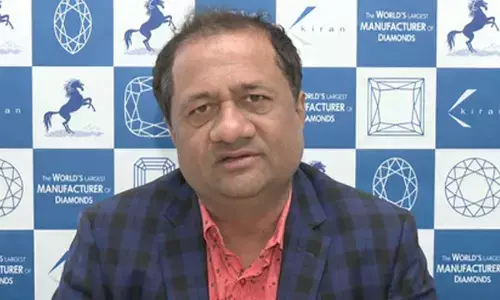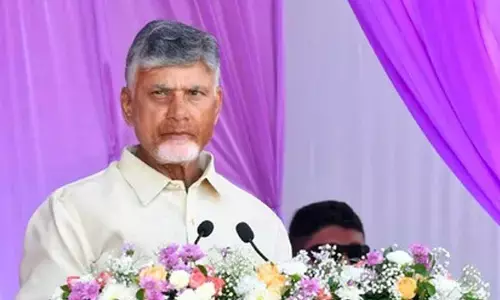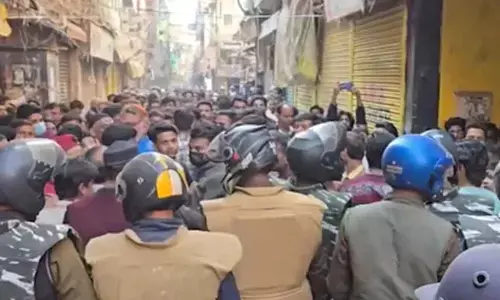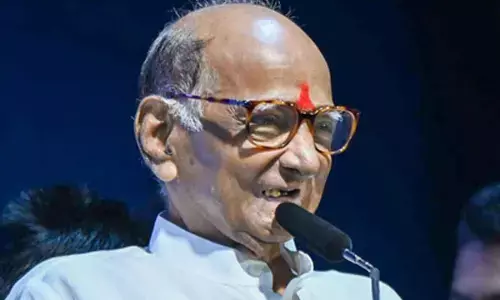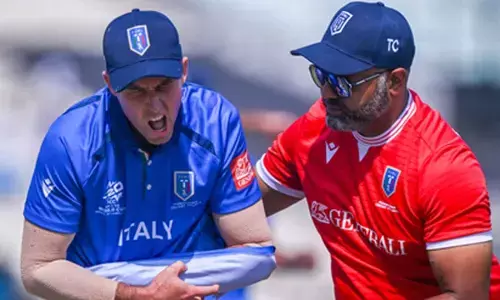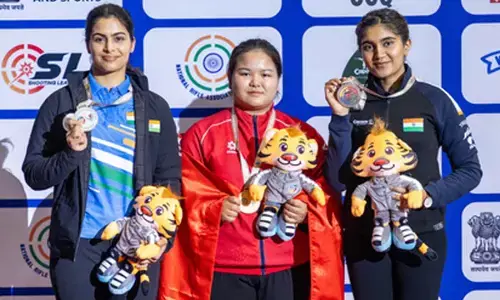MyVoice: Views of our readers 2nd July 2023
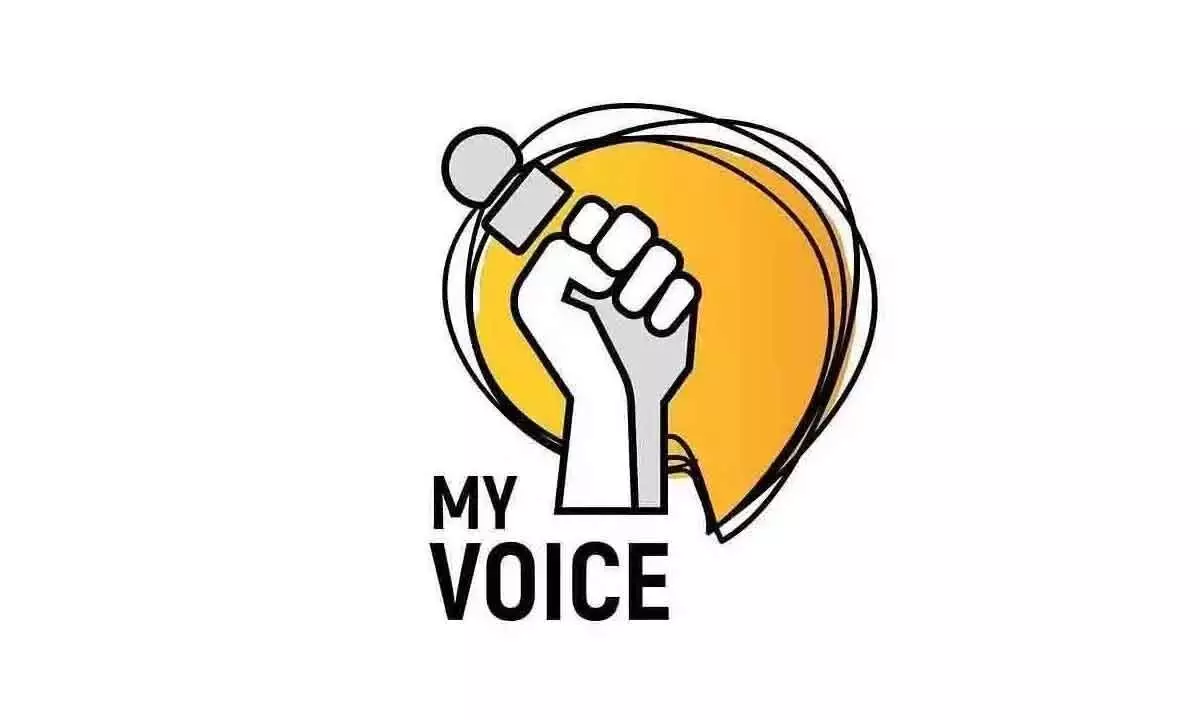
Views of our readers
TN Governor's act quite an unconstitutional one
Tamil Nadu Governor R N Ravi is now left with egg all over his face. His impetuous action of dismissing Senthil Balaji, a Minister without portfolio in M K Stalin’s Cabinet, has raised doubts about his fitness to hold the office of Governor. By keeping the dismissal in abeyance in the face of the trenchant flak he came in for for his unconstitutional act, he barely salvaged his reputation. Putting the dismissal on hold is as good as revoked.
The Attorney General is sure to point out the unconstitutionality of the Governor’s decision to dismiss the Minister. The unilateral dismissal of a Minister was not the smartest thing for a Governor to do. The Constitution does not confer on the Governor the power to dismiss a Minister without the ‘advice’ of the Chief Minister. It is as simple as that. Gubernatorial powers are limited for a Governor to act at whim. A Governor cannot assume for himself powers that the Constitution does not vest him with. The implacable hostility R N Ravi displays towards the DMK government is not very becoming behaviour for a Governor. He is antagonistic to the government and casts himself in an adversarial role. It is evident from his needling the government that R N Ravi does not mind being perceived as a thorn in its side. He has made a real balls-up of his duties. He does not deserve the backing of the Union government. What Ravi has done must be a salutary lesson for the Union government to appoint persons who can be relied on to adhere to constitutional proprieties as Governors.
– G David Milton, Maruthancode, TN
II
That the immediate retraction of decision to dismiss a minister who was arrested by ED in Tamil Nadu by the Governor has averted a big fight between the legislature and the office of Governor there. It's said to be the wiser counsel of the Union Home Minister that could influence the Governor's decision to take a legal opinion in this regard rather to outright dismissal. The gubernatorial office should act according to the aid and advice of the cabinet. The elected government by the people should have the final say in the matters related to ruling. It's the Chief Minister's discretion to select his team of ministers. If the Governor can dismiss one minister on one or other pretext, it would be detrimental to the spirit of democracy. Now, the Supreme Court will have to clarify the boundaries of contesting offices.
– Dr DVG Sankararao, Vizianagaram
III
The standoff between the Governor and the DravidaMunnetraKazhagam (DMK) government in Tamil Nadu hit a fever pitch when the former, without consulting the Chief Minister, removed Balaji from the Council of Ministers. Even as the dismissal is on hold, the question remains – does the Governor have the power to dismiss a minister? After his arrest, the DMK minister fell unconscious and reportedly underwent a coronary angiogram. Though he is currently in judicial custody and being investigated by the Enforcement Directorate (ED), CM Stalin had retained him as a minister without portfolio. No Governor can arbitrarily remove ministers. He or she can only do it on the aid and advice of the Chief Minister. If the appointment of ministers is on the aid and advice of the CM, how can a Governor remove a minister without consulting the CM? This is a thousand dollar question in the political circle.
– ShanthiRamanathan, Ghaziabad
IV
The action of the Governor of Tamil Nadu has compelled a common man to think whether the post of Governor becoming a liability on the state as the Governor had dismissed a minister without the request of the Chief Minister of Tamil Nadu and this unprecedented action to dismiss jailed state minister SanthaliBalaji from the Council of Ministers is totally illegal. He himself had kept the order in abeyance as he realised that he had undermined the Constitution. Even as the dismissal is put on hold, the question remains - does the Governor have the power to dismiss a minister? No Governor can arbitrarily remove a minister. So when does Governor have the power to dismiss a government? Only when the government loses a majority and refuses to step down.
Governors' main purpose is to see whether the Constitution is being followed meticulously. It is observed that they run roughshod over elected legislatures and councils of ministers, thinking that they enjoy the same level of power and immunity as the governor generals of the Raj Bhavan. They sit over pieces of legislation passed by state Assemblies and pick and choose some to sign while keeping the legislatures in the dark over the others. They, in short, undermine the very idea of democratic governance and constitutional propriety. One of the worst displays of gubernatorial excesses in Independent India was orchestrated by Tamil Nadu Governor R N Ravi. The Union government would do very well to put in place a mechanism to screen gubernatorial candidates on the basis of their knowledge of the Constitution before announcing their appointment. It is, after all, going to be their job to preserve and defend the Constitution. Even during the Constituent Assembly there was discussion whether there is need of post of Governor but ultimately it was decided to create the ornamental post just to see whether the Constitution is being followed meticulously
– Yash Pal Ralhan, Jalandhar
Anger is one letter short of ‘danger’
Mark Twain once said, "Anger is an acid that can do more harm to the vessel in which it is stored than to anything on which it is poured". If "anxiety" is added, then nothing can stop our health going out of control. Every day we see or read angry exchange of arguments and comments between the ruling party led by PM Modi and the opposition led by Rahul and other opposition leaders. Come Parliament session, we see exchange between ruling party and opposition. If this is not enough, hundreds of serials to entertain people through TV are adding fuel to fire.
When we visit hospital and if it happens to be multi-speciality, all departments are crowded with patients in various departments. One can understand old aged patients, but more and more younger people are getting health problems and many happens to be stomach related problems not only because of life style including anger and anxiety, which I call as two A's.
The multi-speciality hospitals are exploiting the lifestyle health problems to the fullest by recommending needless tests before prescribing medicines. The people who visit these hospitals are warmly welcomed by watchand ward staff at gate and well-dressed ushers and only when they enter do they realise that they have entered a five star hotel like fish market. The chaos near registration and billing counters is beyond explanation. If people want to avoid visiting such chaotic hospitals, they must keep two A's at bay. However, such hospitals are also playing important role in development as lakhs are working and depending on them to survive. However, these hospitals also should follow humane approach as the people visit them to get relief unless multi speciality means multi visit. Last but not least, the politicians who are spreading anger and anxiety are not role models after all, they are all previleged class as they are under special care of doctors on call.
– N Nagarajan, Hyderabad
Govt move to defer TCS a good decision
The Ministry of Finance informed on Wednesday that the increased Tax Collection at Source (TCS) rates that were to take effect from 1st July 2023, will now be applied from 1st October, 2023. The Ministry further added that transactions through international credit cards, while being overseas, would not be counted as LRS and hence would not be subject to TCS. Previously, it had been decided that 20 per cent TCS would be imposed on all credit card spending abroad. The decision is welcome.
Since the changes in the taxation of spends under were announced, experts have pointed to the operational difficulties these would entail. And that is apart the larger issue that the changes seemed to be a roundabout way of reducing the LRS limit from the current $2,50,000 a year; that it helps neither the short-term target of revenue mobilisation nor the medium-term one of convertibility; and that it goes against the spirit of this government's "ease-of-living" philosophy.
The suspension and the deferral have addressed these issues, in part, but only temporarily. There are still several grey areas that need clarification. The government did a smart thing by not rushing through the implementation; perhaps it should do the smarter thing and scrap the changes altogether.
– TKR. Noori, Hyderabad
Dedication, sacrifices of docs go unnoticed
The nation observes 1st July of every year as the Doctors Day. Doctors definitely deserve to be remembered and a sense of thanks and admiration for the tireless and committed services they extend with social consciousness and professional commitment. Of all the professions, those in teaching and practising medicines enjoy the utmost admiration from one all in the society. On this day instead of a ritual greeting to doctors, the government should have assured to address their grievances with all its sincerity and seriousness. The policies being pursued since 1990, under the dictates of the IMF, have transformed healthcare as a commodity meant to be availed as an exclusive privilege of the affluent. To cover this up, another mistake is done by introducing health insurance schemes like ArogyaSree and Union government's schemes which hasten the process of distancing the common people from availing the best health care at free of cost in public health care institutions. These schemes have their own debacles and shortcomings. This could only win the overall hatred than appreciation from general public. This is displayed as vehement reaction in times of an unpleasant outcome of treatment. But unfortunately the aggrieved mob reacts against the doctor or the institution concerned, forgetting that it is the government policy that is the root cause. Let people understand the doctors and help them in improving their service instead of hindering their social commitment. Let doctors be allowed to serve the society to save the humanity.
– A G Rajmohan, Anantapur
Political ethics at new low in our democracy
The amount of hatred that the Republicans and Democrats have for each other in the USA is even preventing marriages across the groups, if reports need believing. The same hate is now evident in the multi-party system of India, where things are even more chaotic. Both for the parties and the people following the parties, affiliation with the party seems to matter more than the nation itself. A new party comes into power and immediately undoes whatever the previous party has done, good or bad. There is prompt renaming of many schemes and benefits.
Even something so simple as praising a past PM on his birth anniversary becomes a slugfest between political parties as one accuses the others of inadequately honouring him. Great Indians who worried for their country are now in the brackets of narrow political identities. The most disturbing thing for an ordinary citizen is the role of the governor.
There are all the reasons to disband it completely now that it has become a political post. In most states, allegations and counter-allegations abound that the Governor is acting as the centre’s agent. The Governor is mostly on an absolutely independent but ineffective path, unconnected to the ruling party.
The mess is of gargantuan proportions, and finally, the desperation for votes and the greed for power seem to be driving the country’s democracy rather than a love for the country. However, Greek philosophers two thousand years ago made the same criticism of democracy. Is there a way out? Perhaps the first would be to ensure some qualifications to become leaders, like some basic education and a lack of criminal records. Any civilization looks at qualifications and authority to allow any person to do his duty. It is sad that in a democracy, there are requirements to qualify for the lowest of the posts, but none for ruling the people, except the power to gain votes by any means possible.
The leaders of today are only dividing the people in every conceivable manner, with rarely a holistic vision encompassing the country. Unfortunately, the people are following suit.
– DrPingali Gopal, Hanamkonda
Promising AI potential for Indian health care
The health care industry has been blessed with the benefits of Artificial intelligence in numerous fields including drug discovery, diagnosing diseases, monitoring health, surgery and managing data. The AI is a network of expert system that have substantially reduced workload of experts. To achieve this, an AI system has to undergo a learning system just like human children. For example, a cardiac disease diagnosing AI system is fed with thousands of heart beats ranging from normal to those that may indicate problems. With regular repetition, the computer's algorithm learns to distinguish heart disease in less than 30 seconds. One of the most important things is AI does allow doctors to spend more clinical time with patients and lesser time with data. One of the key advantage of AI is its cognitive ability which is bigger than human capacity. In case of drug development, a human chemist have to run 6000 tests where as an AI runs only 150 tests. Thus with less time to reach clinical stage, the drugs eventually reach the patient faster as well as at a cost effective rate.The aim is to lower the cost and time of discovering drugs to treat. It will gradually make treatment affordable. With more data about individuals and more treatments of individual the precision of willbe better.
One thing is pivotal for the success of AI, and that is the quality of data it is storing. The quality of data will limit its application. Besides this high end technology is not everyone's cup of tea to understand to be grasped like conventional subjects taught in colleges. Some experts fear loss of jobs too. The potential is promising and it is only the beginning of the journey. Thus only future incidents can say how it will restructure the health care.
– ArkaGoswami, Durgapur (WB)
Congress climbdown key to Opposition unity
"All is fair in war and politics", they say. In most countries, political parties come into existence only to capture power on the pretext of serving people.This is true in the case of the 17 parties that have decided to forge an alliance to take on Modi unitedly in the 2024 Parliament elections.
The grand old party, the Congress, must take the lead in this issue as it is the only national party among the 17 like-minded parties with a pan-India appeal and vote bank. But is it willing to make the big sacrifice of forgoing the PM post if they win enough number of seats? It is a most unlikely eventuality. As of now, Rahul Gandhi can't even contest in the elections, thanks to his disqualification ordered by a court. That is why Priyanka has been taking a big role in the party and her charismatic presence undoubtedly played its role in the Karnataka elections. Other parties for sure may not digest the idea of allowing Priyanka to step into the shoes of Modi. This is a major imponderable in the way of working out unity among the parties.
Seat sharing is yet another hurdle. In the 17th Lok Sabha, the total strength of all these parties is less than 250, the Congress party leading with 52 MPs. Now they must find winning horses in at least 350 places so that they may get the minimum majority for forming the government. Last time the Congress party had contested alone for 417 seats without any alliance with regional parties.It must avoid that blunder now and squeeze in as many regional parties as possible into an alliance. It augurs well that discussions between the Congress and the BSP and the SP are already on in this regard especially in the three States that are going for elections soon.
An imaginative election campaign is all that these parties need. They have to deploy powerful speakers and rabble-rouseres with mass appeal both at the national and regional levels. Besides Rahul and Priyanka,there are only a few such leaders like SaratPawar, Arvind Kejiriwal, MamataDidi and et al. But these leaders will be tied down in their respective States and may find little time to spare for other places.Again they must coin powerful slogans and catchy clarion one liners to grab the attention of the voter. Above all, these leaders must script powerful speeches that can expose the failures and foibles of the Modi government.
The 2024 elections will be fought like a battle of wits. It will be a big test for the sagacity of the grand old party. If KCR's abhorrence towards the BJP is real, the Congress and its allies must not waste time in bringing him on board at any cost. In the post-Karnataka elections scenario one can safely say that the Centre has changed its approach towards the States in the South .Modi is already on the job to win back KCR and Chandrababu Naidu into his fold where Jagan has already settled cosily.
The Congress has a strong sentimental, and historical attachment with the hill station of Shimla where a conference in 1946 had made the way for our Independence.These parties will definitely hammer out an alliance soon but whether they win the elections or simply take to the hills remains to be seen.
– M Somasekhar Prasad, Hyderabad
II
Even as the national party of Congress is devoid of confidence in a face off with Modi, the regional parties can obviously have the upper hand as the former has failed to bring anti-BJP parties under one single roof. Hence, the responsibility to lead the opposition parties has been delegated/passed on to the Bihar Chief Minister Nitish Kumar by ignoring BRS leader KCR who was steadfast to shoulder the onus on himself. Mamata Banerjee and SharadPawar despite being powerful regional party leaders have come out of Congress by opposing Sonia Gandhi leadership and forming political parties of their own. Congress is either not ready to delegate responsibility for them to unite opposition parties. Congress party strategists have selected Nitish Kumar to assume the responsibility for uniting opposition parties.
The Congress party had categorically put off the opposition party meet scheduled for June 12 in Patna owing to certain misfortune replete with this date. The Patna meet of the opposition to be organised with the agenda of "Mission 450" was aimed at fielding a candidate representing 450 seats for opposing BJP in all eventuality. This kind of manipulation in respect of opposition party strategy was not new to the nation as it was a reality during Indira Gandhi's regime in 1977.
Congress and BJP parties are actually the principal opposition parties in 12 middle and North Indian States in addition to 3 U/Ts which constitute 190 Lok Sabha seats of which 175 seats were won by the BJP in the previous term elections. In the 2018 assembly elections held in these States Congress had won by defeating BJP. There had been a phase reversal in 2019 Lok Sabha election results which showed a total failure for Congress in Rajasthan, Karnataka and M.P. Though Congress could gain power in some States, there was no additional advantage as regards Lok Sabha elections. In the 2019 elections, national parties which contested in alliance with regional parties had given a wider scope for the BJP rather than for the Congress.
A political nexus between the regional and national parties was markedly observed in the case of UP, Bihar, West Bengal, Jharkhand and Odisha States.
The bigger States of Tamil Nadu and Andhra Pradesh gave a major share for the regional parties with 58 seats and 8 seats for Congress and 0 seats for the BJP out of a total of 66 seats.
There had been a tough fight between the regional and national parties in the States of Maharashtra, Telangana and Punjab where there are 93 seats. While the regional parties won 41 seats, BJP and Congress bagged 40 and 12 seats respectively. All in all, in the wake of newly emerging trends in opposition party unity, the objective of achieving 450 Mission by a total of 12 opposition parties is rather a doubtful predicament.
– Bh Indu Sekhar, Hyderabad








